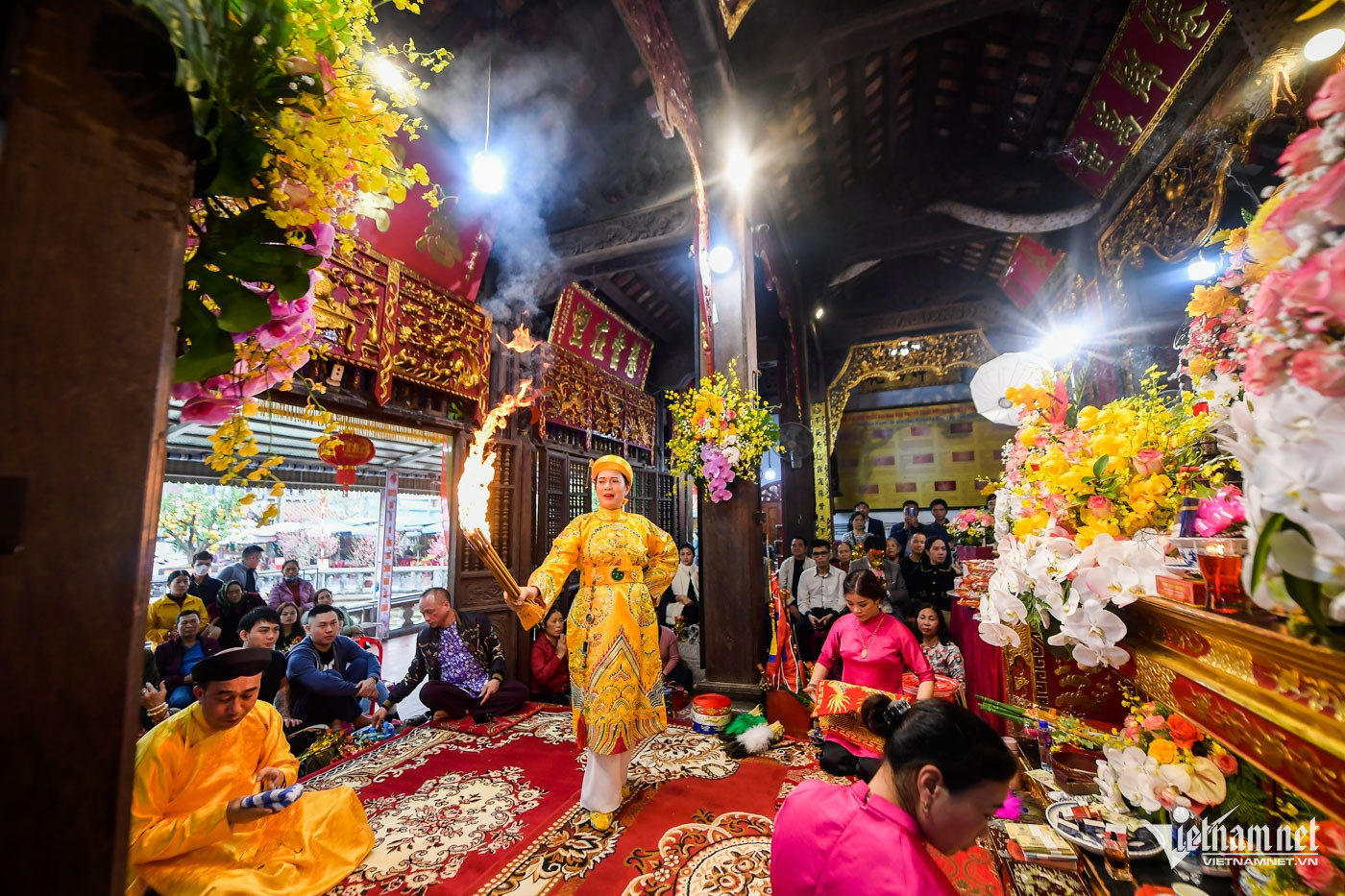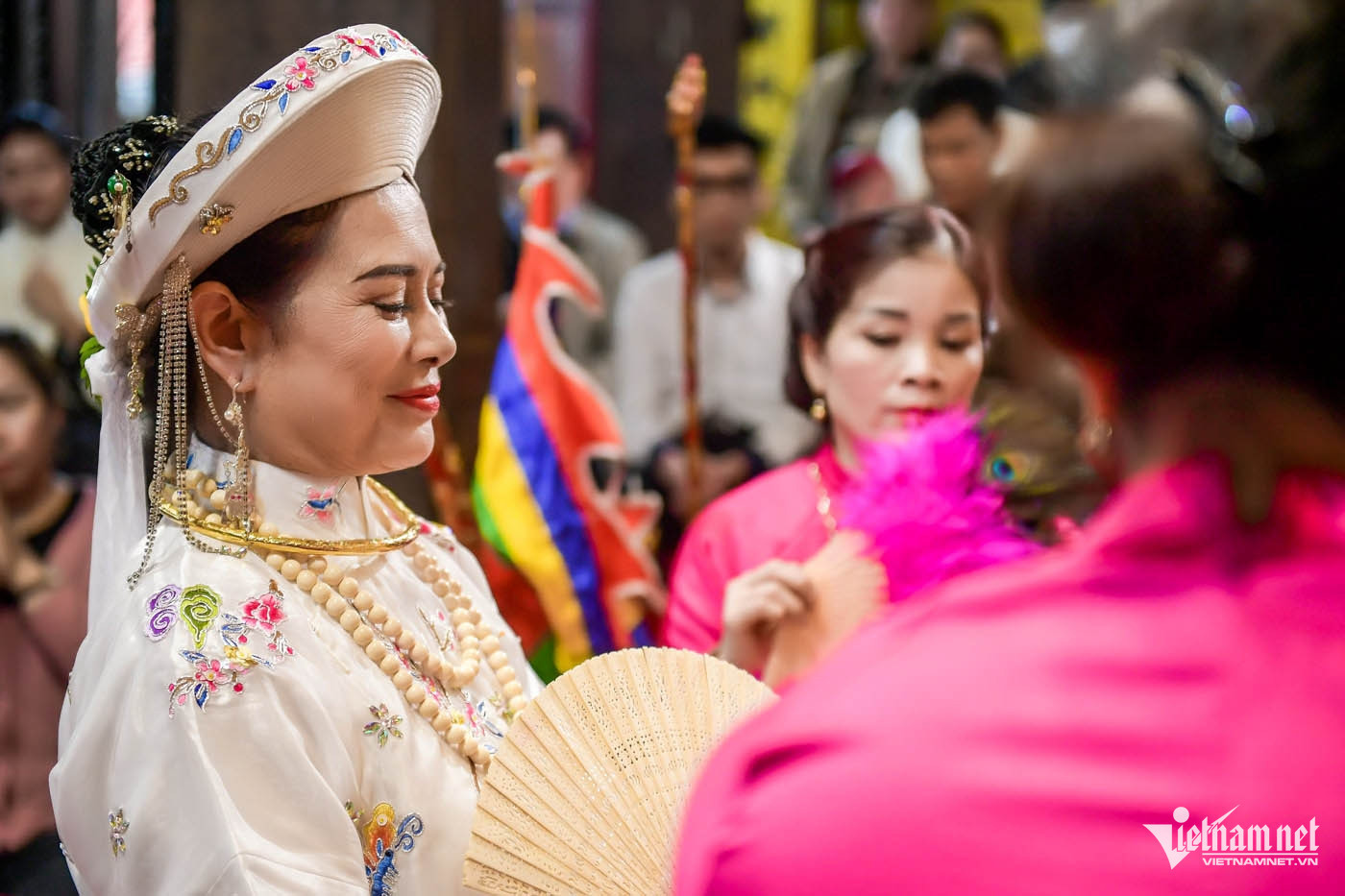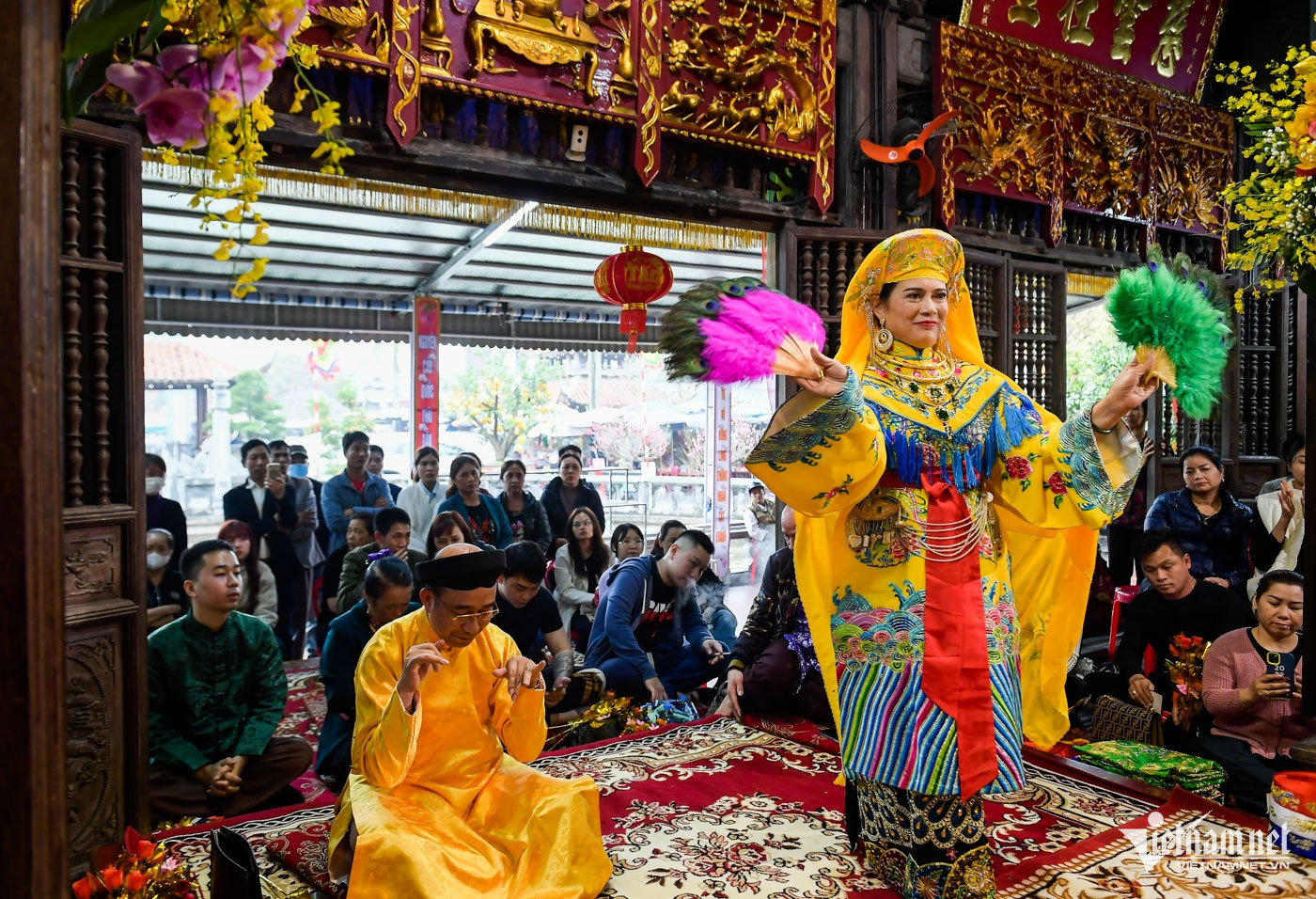
At nearly 70 years old, Tran Thi Kim Hue, an Outstanding Artisan and the keeper of Phu Chinh Temple (part of the Phu Day architectural heritage complex in Nam Dinh), remains devoted to safeguarding and promoting the sacred practice of Mother Goddess Worship (Dao Mau Tam Phu).
Recognized by UNESCO as an Intangible Cultural Heritage of Humanity in 2016, the Mother Goddess Worship tradition encompasses a range of rituals, including offerings, ceremonial music (Chau Van), and spirit possession rites (Hau Dong) - with Hau Dong and temple festivals being its most essential practices.
A ‘living archive’ of Vietnam’s Mother Goddess Worship
Born into a family deeply rooted in Mother Goddess Worship, Tran Thi Kim Hue was introduced to the faith at an early age by her mother, People’s Artisan Tran Thi Duyen.
For decades, she has dedicated herself to mastering, preserving, and teaching the traditional forms of this spiritual practice. With extensive knowledge of Vietnamese history and culture, she ensures each ritual remains authentic and meaningful.
According to Hue, Mother Goddess Worship is more than just a religious practice - it carries profound moral and humanitarian values.
“The Hau Dong ritual is not merely a performance; it is a spiritual reenactment of the lives of heroic figures who contributed to the nation. Being chosen to serve as a medium for these spirits is a profound honor,” she explained.
Practitioners must deeply understand the history and origins of each deity they embody, allowing spectators to connect with the ritual’s significance. This knowledge also helps educate younger generations about Vietnam’s cultural heritage while promoting it internationally.
In 2016, Hue represented the Vietnamese spiritual community in Ethiopia, where she participated in efforts to gain UNESCO recognition for Mother Goddess Worship.
In 2019, she was awarded the prestigious Outstanding Artisan title by the President of Vietnam for her contributions to intangible cultural heritage.
The fight to preserve authenticity
Experts emphasize that preserving the integrity of Mother Goddess Worship requires strict regulation to prevent distortion.
With over 50 years of experience practicing Hau Dong, Hue remains deeply concerned about how modern influences are altering its sacred meaning. She is particularly troubled by the growing trend of commercializing the ritual.
“In recent years, Hau Dong has been misused by some individuals for financial gain, distorting its sacred nature,” Hue lamented. “These deviations mislead the public, making Hau Dong appear superstitious rather than a respected cultural tradition.”
To combat this, Hue organizes educational discussions to help practitioners and the public understand the spiritual and historical significance of each ritual.
At Phu Chinh Temple, where she serves as keeper, she ensures that every Hau Dong ceremony adheres to traditional standards - from costumes and offerings to ceremonial music and movements.
Keeping Mother Goddess Worship alive in modern society
Hue is committed to expanding awareness of Mother Goddess Worship, both within Vietnam and abroad. She actively participates in conferences and cultural forums to promote proper preservation efforts.
Her work includes:
Educating younger generations about the ritual’s importance.
Collaborating with cultural experts to refine preservation strategies.
Traveling internationally to showcase the spiritual and artistic aspects of Hau Dong.
She strongly believes that preserving this tradition is not just the responsibility of a few individuals but a national duty.
“The Mother Goddess faith is the soul of Vietnamese culture. If we fail to protect it, we risk losing an irreplaceable part of our identity,” she stated.


With over 50 years of experience, Hue remains committed to preserving traditional Hau Dong practices. Photo: Trong Tung
